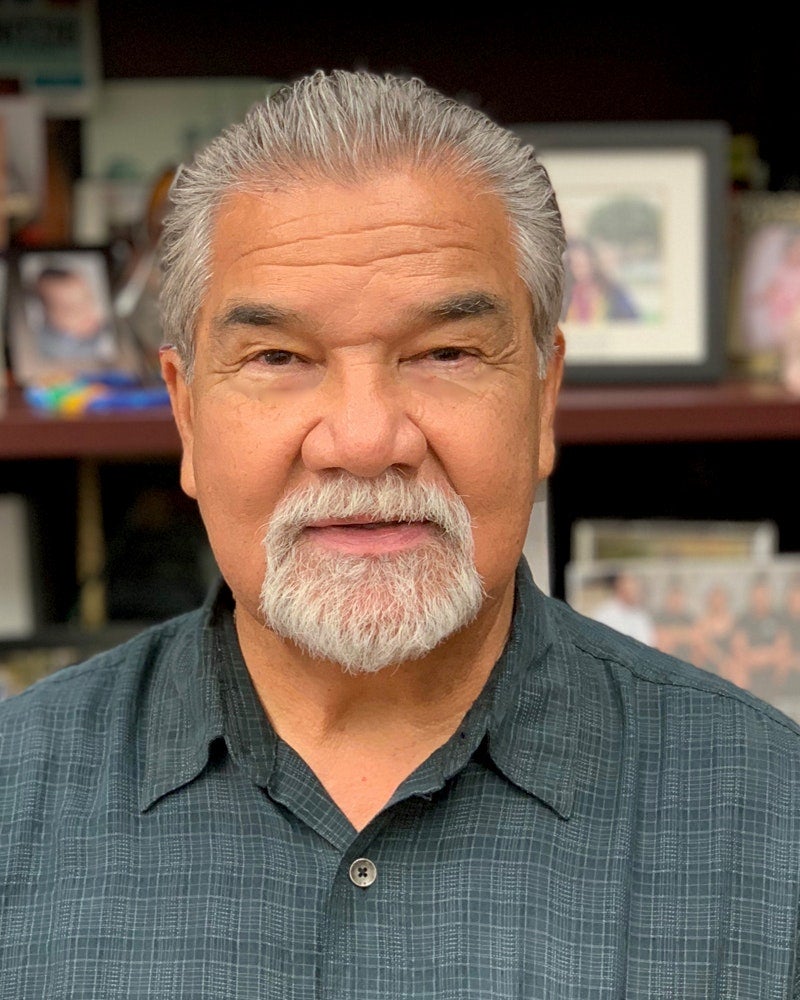Daniel G. Solórzano, UCLA professor of education and Chicana/o studies, has been elected to the National Academy of Education. A renowned scholar of critical race theory and pedagogy, he is one of 15 scholars from across the nation this year to receive this honor and to be recognized at the 2020 NAEd annual meeting, to take place in Washington D.C. in November.
NAEd members are elected based on outstanding scholarship and are tasked with serving on expert panels that take up the most critical issues in education as well as the National Academy’s various professional development programs. Professor Solórzano is one of this year’s four inductees from the University of California.
“To paraphrase Voltaire, if we didn’t have Danny we would need to invent him,” says Wasserman Dean Marcelo Suárez-Orozco. “Professor Daniel Solórzano is a towering figure in our field, who has been at the forefront of many of the defining conceptual and empirical issues in education today. His contributions to critical race theory and pedagogy, racial microaggressions, and the matter of access, persistence, and graduation of Students of Color in the United States are widely recognized as pioneering. Well done, Danny – the entire GSE&IS community joins me in congratulating you on this extraordinary recognition.”
“As I wrote to Danny in an email when I received the news, his election to the National Academy signals to the world what we at UCLA all know – that he is one of the most important contributors to our conversations on education, access, race and racism,” says Professor Christina (Tina) Christie, chair of the UCLA Department of Education. “I am honored to serve on the same faculty as Danny as well as the other National Academy members who we have in our ranks.”
“I had a feeling of gratitude and humility when I received the notice of this award,” says Professor Solórzano. “In truth, as with most milestones in my life, this award is a reflection of the decades of support from my family, my students, and my colleagues.”
Solórzano teaches in the Division of Social Science and Comparative Education in UCLA’s Graduate School of Education & Information Studies. His teaching, research and publishing interests include critical race theory in education; racial microaggressions; critical race pedagogy; and critical race spatial analysis.
Professor Solórzano has authored more than 100 research articles and book chapters on issues related to educational access and equity for underrepresented student populations in the United States, critical race theory, and racial microaggressions. He has taught at the Los Angeles County Juvenile Hall, the California Community College, the California State University, and the University of California Systems.
Among his many accolades, Solórzano has received the UCLA Distinguished Teacher Award, the AERA Social Justice in Education Award, the Derrick A. Bell Legacy Award from the Critical Race Studies in Education Association, and the Mildred Garcia Exemplary Scholarship Award from the Association for Studies in Higher Education (ASHE). In 2014, he was selected as an AERA Fellow, and in 2017, received the inaugural AERA Revolutionary Mentor Award.
At UCLA, Solórzano served as the inaugural Associate Dean for Equity and Diversity and Chief Diversity Officer representing UCLA Ed & IS from 2014 to 2015, and served as director of the University of California All Campus Consortium on Research for Diversity (UC/ACCORD) from 2008 to 2015.
In 2015, Professor Solórzano and a cadre of UCLA graduate students and alumni launched the UCLA Center for Critical Race Studies. The Center engages scholars and community members in interdisciplinary research that expands the understanding of crucial educational and social inequality issues, including race, racism, and their connection to other forms of discrimination such as sexism, classism, homophobia, and ableism. The Center and its scholars and researchers are focused on producing and supporting studies that explore historical and contemporary issues impacting diverse communities in order to achieve educational equity and work toward social and racial justice.
